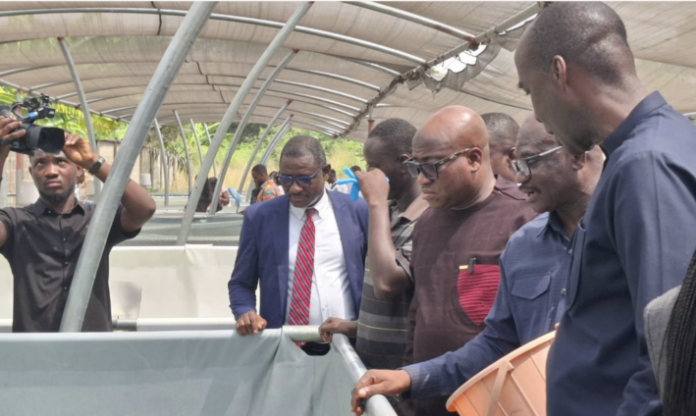About 15 research projects being implemented by the Council for Scientific and Industrial Research (CSIR) are on the verge of being halted following cutbacks in America’s foreign aid spending.
The projects, which the Savanna Agricultural Research Institute (SARI) is implementing to boost agricultural productivity, are funded by the United States Agency for International Development (USAID).
CSIR management expressed concern over the development when Minister of Environment, Science, and Technology, Ibrahim Murtala Muhammed, paid a working visit to the CSIR and some of its institutions in Accra on Tuesday.
The visit formed part of his familiarisation tour of agencies under his supervision to assess their operations.
SARI, one of CSIR’s 13 institutes, is located in the Tolon District of the Northern Region. USAID has supported SARI in improving agricultural research effectiveness to provide smallholder farmers in northern Ghana with quality seeds and technologies.
CSIR Director-General, Professor Paul P. Bosu, told journalists the Council was exploring ways to sustain the affected projects.
“We are going to have serious shortfalls with the projects we are implementing. We have to get ourselves ready,” he said, adding that the Council would present a proposal to the sector minister to discuss bridging the funding gap.
Other challenges highlighted included declining donor support, lack of private sector investment in research and development, outdated laboratory facilities, and encroachment on CSIR lands.
The Council briefed the Minister on plans to swap some of its prime lands to raise funds for its operations and address funding challenges.
Mr. Muhammed welcomed the innovations and reiterated his commitment to commercialising CSIR’s research findings to generate revenue.
He said CSIR could develop crop varieties to reduce the millions of dollars spent on importing essential food items such as rice, tomatoes, and poultry products.
The Minister tasked CSIR institutions to submit a proposal outlining a “compelling case” for funding and investment to enhance their operations.
“If we can find a way for some of the institutes to take up the responsibility of providing some of the basic needs of state institutions, such as the School Feeding Programme, and build the capacities of our SMEs, we can build upon that,” he said.
ALSO READ:


